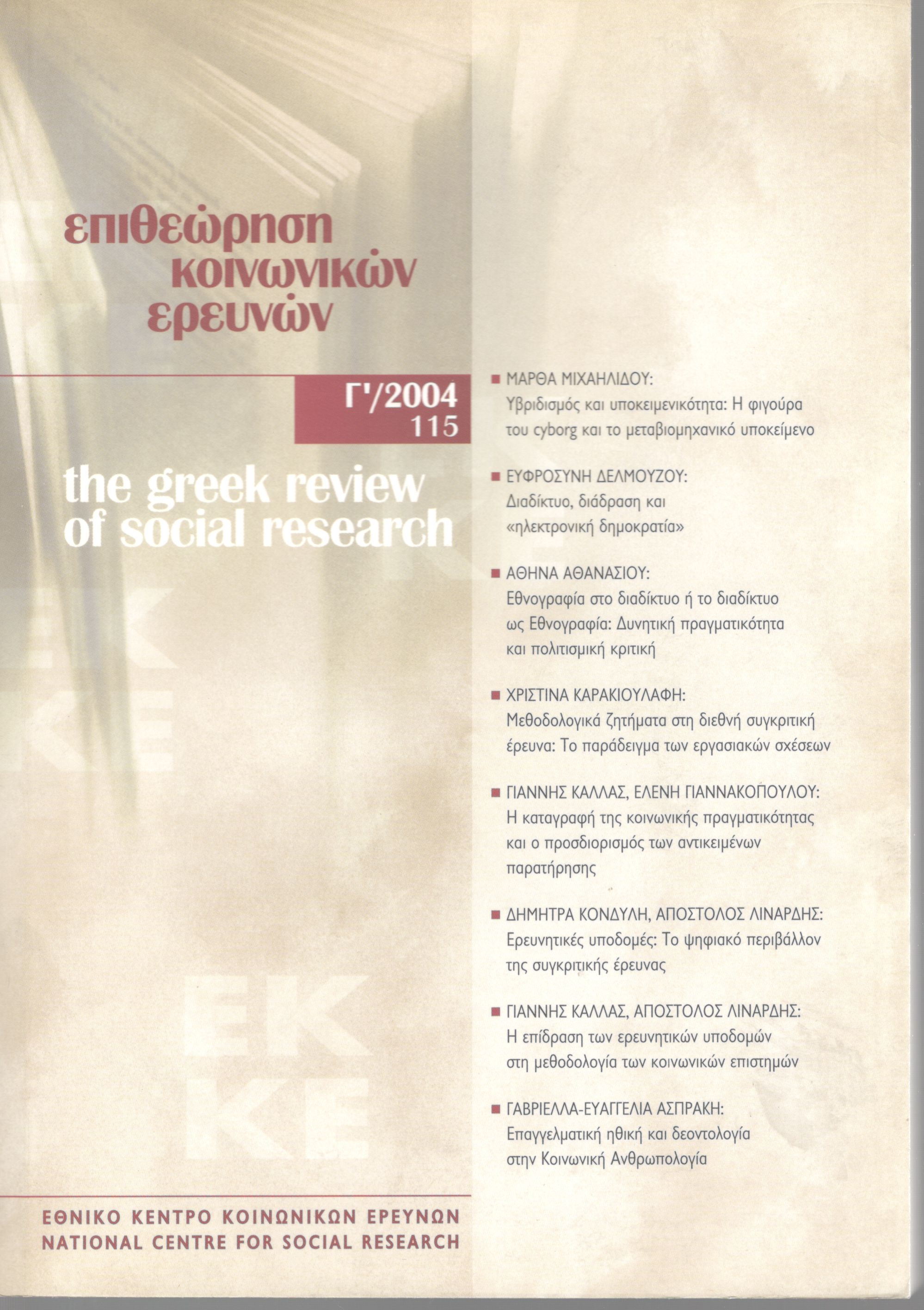Mapping the biopolitics of borders: Bodies, places, deterritorializations

Abstract
In the current context of crisis, precarity emerges as a condition for constituting certain subjects as “foreign bodies”. The subjectivating norms of migration and gender, in their inextricable relationship with economic and class status, are deployed as techniques of border demarcation and biopolitical regulation. Specific gendered and ethnicized/racialized subjects, through their subsumption under essentialist typologies of superfluous bodies, are turned into abjected exceptions of the political order: ideal “others”, ideal victims. In this context, the discursive regime of national, proprietary, white and heteronormative masculinity is established as a norm that determines the human and the political. The gendered and the national positioning, in their performative co-implication, crucially affect the ways in which the apparatuses of displacing and emplacing unfamiliar others produce and demarcate the space of the political community. How does the articulation of gender and migration work to produce different enactments and embodiments of the ‘glocal’? How are nationalisms de-territorialized and re-territorialized through significations and practices of gender, sexuality, and migration? If power and resistance are intertwined, how do abjected subjects, rendered superfluous and alien, return to the political arena, and how do they unsettle the violence through which they have been produced as abject?
Article Details
- How to Cite
-
Αθανασίου Α., & Τσιμουρής Γ. (2013). Mapping the biopolitics of borders: Bodies, places, deterritorializations. The Greek Review of Social Research, 140, 3–37. https://doi.org/10.12681/grsr.54
- Section
- Articles

This work is licensed under a Creative Commons Attribution-NonCommercial 4.0 International License.
Authors who publish with this journal agree to the following terms:
- Authors retain copyright and grant the journal right of first publication with the work simultaneously licensed under a Creative Commons Attribution Non-Commercial License that allows others to share the work with an acknowledgement of the work's authorship and initial publication in this journal.
- Authors are able to enter into separate, additional contractual arrangements for the non-exclusive distribution of the journal's published version of the work (e.g. post it to an institutional repository or publish it in a book), with an acknowledgement of its initial publication in this journal.
- Authors are permitted and encouraged to post their work online (preferably in institutional repositories or on their website) prior to and during the submission process, as it can lead to productive exchanges, as well as earlier and greater citation of published work (See The Effect of Open Access).



